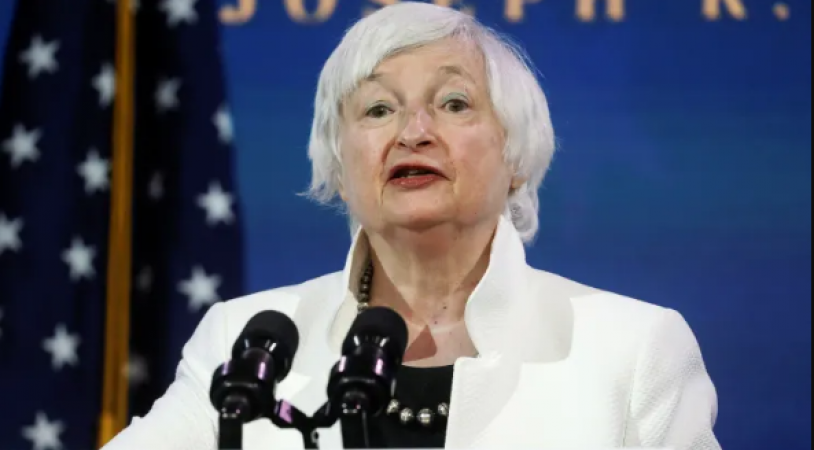
United States: OPEC+'s decision to cut oil output is "unhelpful and unwise" for the global economy, especially emerging markets that are already suffering from high energy prices, according to US Treasury Secretary Janet Yellen .
The oil cartel, which this week defied US pressure to keep oil prices low, and was backed by Saudi Arabia and Russia, has faced strong criticism from the Biden administration.
Also Read: OPEC+ output cut decision will sustain markets rather than raise prices
In a phone interview with the Financial Times, Yellen said, "I think OPEC's decision is unhelpful and foolish - it's uncertain what impact it will have, but it's something I don't think is appropriate, given the circumstances." We face." "We are very concerned about the issues facing developing countries."
Yellen was speaking in advance about the annual meetings of the IMF and the World Bank, which will take place in Washington next week. These meetings will be dominated by discussions of high inflation and commodity prices, a sharp tightening of monetary policy of several central banks, and the economic and financial effects of the conflict in Ukraine.
"I am confident that we will discuss how our respective nations are addressing these issues and try to determine whether our collective response is something that is appropriate and the best we can do in that challenging environment." " He said.
The US is hoping to use the meetings to pressure European countries to provide economic aid to Ukraine, as Washington is increasingly frustrated that some of its allies are not fulfilling their commitments to financially support Kyiv. Lagging behind in completion.
“Many countries have promised to provide substantial economic aid, but they have not yet had time to do so. Money transfers to Ukraine are proceeding very slowly. The US has given Ukraine a total of $8.5 billion,” Yellen said. dollars in grants and that an additional $4.5 billion had just been approved by Congress. "There are commitments, but the funds need to be deployed," she said.
We need to see other countries fulfilling their commitments. Additionally, it is imperative to get this funding to Ukraine as soon as possible, he continued. The European Commission's executive vice-president, Valdis Dombrovskis, said in a statement on Tuesday that the EU is trying to accelerate the delivery of funds to Ukraine and "working intensively" with member states to unlock the final €3 billion. Will do The €9 billion package that the leaders gave earlier this year.
A "more structured and predictable financing flow" to Ukraine, he said, was also important, and the EU would take this into account as it worked to create its 2023 budget.
Also Read: Petrol-diesel prices likely to go up in India after Diwali
The US and G7 allies are in the final stages of negotiations to set a price cap on Russian oil exports. The goal is to deny Moscow significant energy revenues to pay for the war, while still allowing some oil to leave the country without raising prices globally.
Yellen said keeping prices low is particularly beneficial for developing countries that are hit by high energy prices.
Although White House officials announced they would begin consultations with Congress about possible responses, the Treasury Secretary declined to be prepared on what retaliation might be expected by the US in response to OPEC's move. . She continued, "The president has spent a lot of time looking at all the possibilities of trying to bring [oil prices] down.
Since the Federal Reserve has aggressively raised interest rates in recent months, the dollar has gained significantly in value against many other currencies, raising concern among the yeln's international counterparts. But he claimed that economic reality caused the dollar to rise.
He said, “The dollar has risen significantly, but I believe it is mainly due to regional variations in macroeconomic fundamentals. In the US, the Safe Haven Flow is a response to geopolitical unrest and, of course, monetary There are different rates of tightening."
Yellen also downplayed concerns about some recent market volatility and turbulence. "We keep a close eye on currency movements and their effects. And given the fundamental differences between nations, policies, and economic conditions, we believe the markets are working reasonably well and are generally well suited," he said.
Also Read: OPEC+ cuts significantly to raise oil prices
Yellen refrained from commenting on Britain's massive tax cuts, which sent stock markets into a tailspin, before the Bank of England was forced to take immediate action and Prime Minister Liz Truss withdrew some of the proposals. .